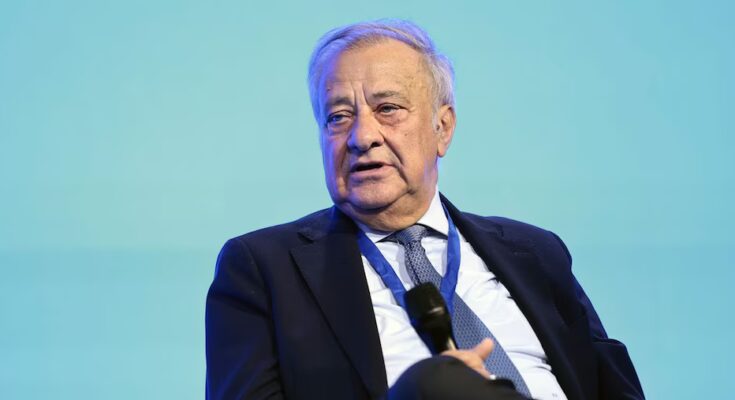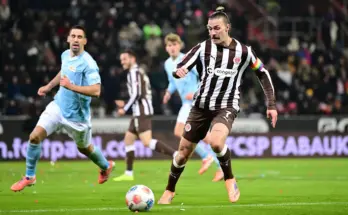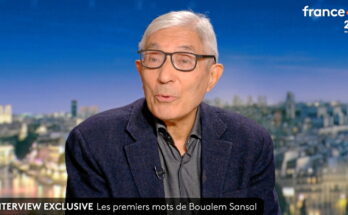Here’s a mini pizza and toast encore. And, both of us, we’re happy about it. Tamburi took up the topic: «Edoardo Agnelli, the eldest son of Avvocato and Donna Marella, often comes to Rome from Turin, and occasionally he joins my friends. But you understand that it belongs to another level, another dimension, another world. We have a common passion for motorbikes. Japanese motorbikes cannot be imported yet. I managed to get my hands on a Honda 250 twin cylinder, a gem. He had a Honda 350, white and red like mine. They are unique in Rome.”
For appetizers, Giovanni took the spider crab, while I chose a plate of porcini mushrooms. Tamburi is a more complex personality than the simple image and standard appearance of an investor who, with his technical skills and talent for companies with strong potential, has greatly helped the Italian industrial system of international medium-sized companies to develop over the last twenty years. In Italy between 1991 and 1992 he participated in the writing of law 35 on privatization (“I was part of the first commission chaired by Luigi Cappugi, an expression of the Ministry of Budget headed by Paolo Cirino Pomicino during the last Andreotti government, maintaining the position during the government of Giuliano Amato, who continued with great determination the project of privatizing everything possible”) and participated in the organization of shipping in Britain: “The Britannia anchored in Civitavecchia, Mario Draghi, director general of the Ministry of Finance, boarded the ship, read a speech about the privatization program for foreign investors and immediately got off the yacht.”
Interestingly, Tamburi, in his mixture of Roman and Milanese, has understood from childhood how complicated everything is, never easy to interpret, always to be respected, rarely judged. His father’s best friend was Franco Nobili, a powerful public manager, a pure Andreottian. Nobili is president and CEO of Cogefar, the construction sector. Tamburi says, in a story that makes the comings and goings between yesterday and today, Rome and Milan, Italy and the world, economy and politics, factory and power compact and rational: «In 1977 I had just graduated in economics and commerce at Sapienza University. He was appointed vice president of Bastogi, a financial company that received an influx of public funds from energy nationalization several years earlier. Cogefar is in Rome. Bastogi in Milan. He called me and said that I had to work in Bastogi. I don’t want to go to Milan. But I couldn’t say no to him. Not just because of his charisma and influence. But also for the love and friendship that binds him to my parents. It has a trusted person with great operational capacity, Nanni Fabris, general director of both companies. I was Fabris’ assistant for three years. One day a week in Rome. The other one is in Milan. In Milan, Nobili’s office borders Fabris’ office. The two secretaries, Tina and Alma, were immediately outside. In the middle, behind a small table, I was placed. I was almost offended. But I don’t understand anything. I immediately understood. Many passed there: Giulio Andreotti, Amintore Fanfani, big businessmen, as well as public and private managers.”
Lunch continued thanks to my sea bass and curry prawns. In Italy, where everything is very complex, good and evil are never concentrated in one geographical place (good in Milan and evil in Rome) or in one anthropological category (good among private entrepreneurs and evil among public managers exercising political extraction). Bastogi was a central figure in Italian private and public capitalism. He had shares in the railroad companies, in Montedison, in Sme, in Beni Stabili. In 1971, Cosa Nostra’s financier friend Michele Sindona tried to take over through the Central Financial Agency, but failed. In the late 60s, Bastogi was outside the black line of crime and business in Italian history which saw on 11 July 1979 the American hitman William Aricò murder the liquidator of the Sindona Private Bank Giorgio Ambrosoli, a good friend of Fabris, who had been on the board of directors of Cogefar, and who saw the banker die on 17 June 1982, under the Black Friars Bridge in London. Ambrosiano Roberto Calvi. However, Bastogi’s financial condition was very bad. Tamburi reconstructs: «In Bastogi there are the best private companies. These include Torchiani, Grandi, Monti and Pesenti. In theory we want to do that merchant bank. In practice, all of them aim to side with the interests of their respective companies. Then I understood two things. I learned what needed to be done to avoid the risk of breaking society apart. Because, in the contradiction between the interests of shareholders and the interests of the company, the interests of shareholders cannot take priority over the interests of shareholders. It served me well in later years. Then I learned that businesses live, recover, and prosper on five balance sheet items: cash, fixed assets, inventory, capital, and debt. Fabris, the great simplifier, taught me this. As a minority shareholder, I always try to contribute not only to the strategic vision, but also to the calm simplification and rejection of the short-termism that, today, too dominates everything and everyone. Today, the vision of the stock market changes every day, to the point of absurdity of quarterly reports, which often impose suffocating obligations and procedures”, concludes Giovanni Tamburi, an entrepreneur-investor in love with business and long-term strategies, a lover (as a child and teenager) of sales in shops and (as an adult) of factory manufacturing and – like me – ultimately very satisfied with creamy ice cream with marron glacée.
Load…



